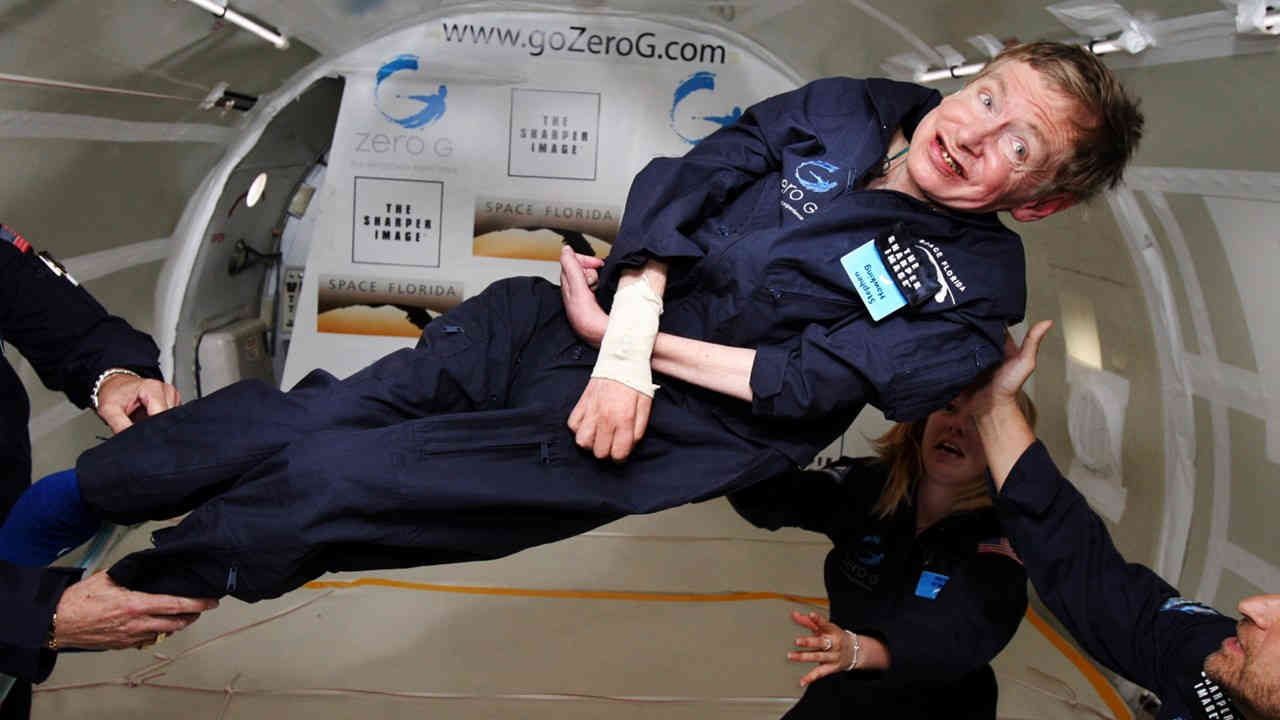
Stephen Hawking was one of the most brilliant minds of the 20th century who made fundamental contributions to the theory of black holes. Hawking is well known to the general public by his record-breaking book A brief history of time, which sold over 25 million copies.
Hawking (1942–2018) was given just a few years to live in his twenties, as he was struck by the paralyzing motor neuron disease in 1963. Not only did he beat the odds, but also revolutionized physics for next half a century.
When Hawking ended his bestselling book with the sentence: If we discover the theory of everything... it would be the ultimate triumph of human reason, for then we would know the mind of God, he raised quite a few eyebrows. Hawking later explained that he had used the word "God" figuratively.
On numerous occasions, Hawking had commented that even if God were to be real, he would be bound by the rules of physics. Therefore, is the idea of an all powerful creator even necessary, Hawking wondered often.
For example, Hawking told New Scientist in 2007: (1) I'm not religious in the normal sense. I believe that the universe is governed by the laws of science. The laws may have been decreed by God, but God does not intervene to break the laws.
In 2011, Hawking would go on to say: (2) We are each free to believe what we want and it is my view that the simplest explanation is there is no God. There is probably no heaven, and no afterlife either. We have this one life to appreciate the grand design of the universe, and for that, I am extremely grateful.
And it is true that Hawking lived life to the fullest. His life threatening disease did not hinder his goals and aspirations. Hawking said, I believe that disabled people should concentrate on things that their handicap doesn’t prevent them from doing and not regret those they can’t do.

In an interview to The Guardian, Hawking remarked on the question of death: (3) I regard the brain as a computer which will stop working when its components fail. There is no heaven or afterlife for broken down computers. That is a fairy story for people afraid of the dark.
On the question of creation, Hawking is clear: (4) Because there is a law such as gravity, the universe can and will create itself from nothing. Spontaneous creation is the reason there is something rather than nothing, why the universe exists, why we exist. It is not necessary to invoke God to light the blue touch paper and set the universe going.
It may be a coincidence but Stephen Hawking was born on the same day that Galileo Galilei died in 1642. It was Galileo, the father of modern physics, who laid the foundations of science and religion debate, building upon his inner contradictions as a deeply religious man.
Hawking continued the great legacy more than 300 years later. According to him, there is a fundamental difference between religion, which is based on authority and science, which is based on observation and reason. This is also the view held by such greats as Dirac and Feynman.
(5) We are just an advanced breed of monkeys—Hawking adds—on a minor planet of a very average star. We are so insignificant that I cannot believe the whole universe exists for our benefit (which is the view that religion has). But we can understand the Universe, and that makes us something very special.






 Physics, astronomy and science history blog for students
Physics, astronomy and science history blog for students
Responsive Ad Slot